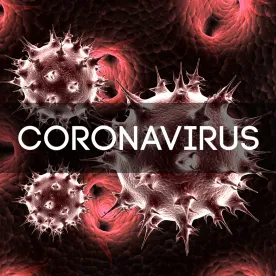On March 20, the Federal Communications Commission’s (FCC) Consumer and Governmental Affairs Bureau (CGAB) declared that “the COVID-19 pandemic constitutes an ‘emergency’ under the Telephone Consumer Protection Act (TCPA) and that consequently hospitals, health care providers, state and local health officials, and other government officials may lawfully communicate information about the novel coronavirus as well as mitigation measures without violating federal law” The Declaratory Ruling took effect immediately upon its release.
The FCC’s rules provide a specific exemption for the requirements for calls to wireless phones calls made for emergency purposes. As the CGAB Declaratory Ruling explains: “The Commission’s rules define ‘emergency purposes’ to mean ‘calls made necessary in any situation affecting the health and safety of consumers.’ The ‘emergency purposes’ exception is intended for ‘instances [that] pose significant risks to public health and safety, and [where] the use of prerecorded message calls could speed the dissemination of information regarding . . . potentially hazardous conditions to the public.’”
With President Trump’s declaration of a national emergency and similar actions by states, the Commission noted that it had “made clear that automated calls to wireless numbers made necessary by incidents of imminent danger including ‘health risks’ affecting health and safety are made for an emergency purpose and do not require prior express consent to be lawful.” Not surprisingly, the Commission found that “the current pandemic constitutes such an imminent health risk to the public.”
However, as previously noted by TCPAWorld, the Declaratory Ruling set two criteria for “determining whether a call relating to the COVID-19 pandemic qualifies as a call made for an emergency purpose.”
“First, the caller must be from a hospital, or be a health care provider, state or local health official, or other government official as well as a person under the express direction of such an organization and acting on its behalf.
Second, the content of the call must be solely informational, made necessary because of the COVID-19 outbreak, and directly related to the imminent health or safety risk arising out of the COVID-19 outbreak.”
The Declaratory Ruling provided examples of qualifying calls as follows: “Thus, a call originating from a hospital that provides vital and time-sensitive health and safety information that citizens welcome, expect, and rely upon to make decisions to slow the spread of the COVID-19 disease would fall squarely within an emergency purpose. An informational call designed to inform and update the public regarding measures to address the current pandemic made on behalf of, and at the express direction of, a health care provider would be made in a situation that “affect[s] the health and safety of consumers” and would thus be exempt. In turn, a call made by a county official to inform citizens of shelter-in-place requirements, quarantines, medically administered testing information, or school closures necessitated by the national emergency would be made for an emergency purpose as such measures are designed to inhibit the spread of the disease.”
However, the CGAB warned that: “calls that contain advertising or telemarketing of services do not constitute calls made for an ‘emergency purpose’ (e.g., advertising a commercial grocery delivery service, or selling or promoting health insurance, cleaning services, or home test kits). Calls made to collect debt, even if such debt arises from related health care treatment, are not made for an ‘emergency purpose,’ as those calls are not time-sensitive, do not ‘affect the health and safety of consumers,’ and are not directly related to an imminent health or safety risk. Such debt collection, advertising, or telemarketing automated calls require the prior express consent of the called party.”
The ruling also made clear that it was aware of scam robocalls seeking to exploit concerns about the virus. The CGAB stated: “Unscrupulous callers should not view the relief we provide here as a retreat from our aggressive work to combat illegal robocalls. As the COVID-19 pandemic continues to impact the United States, phone scammers have seized the opportunity to prey upon consumers. We are aware that some consumers have already received telemarketing and fraudulent robocalls related to the pandemic. For example, we have received reports of scam and hoax text messages and automated calls offering free home testing kits, promoting bogus cures, and preying on virus-related fears. We will be vigilant in monitoring complaints about these calls and will not hesitate to enforce our rules when appropriate.”




 />i
/>i

